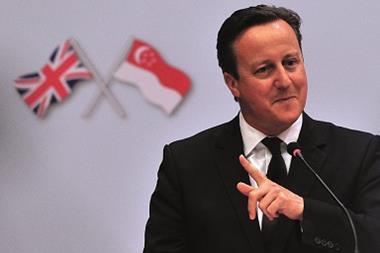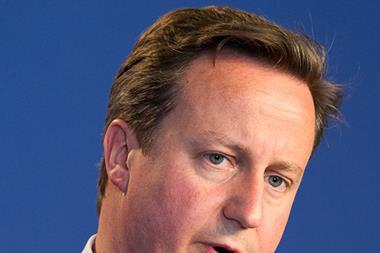So David Cameron wants to crack down on “dirty money” in the UK property industry, does he? Good luck with that one.

I am not saying there is no point in trying. The goal is laudable - £122bn of property is owned by offshore companies and without greater transparency, the UK probably is in danger of becoming “a safe haven for corrupt money from around the world”, if it isn’t already.
But we have no idea of the scale of the problem and we certainly cannot infer from any lack of transparency endemic criminality. Offshore purchasers are not by definition all money launderers. Many register companies overseas for legitimate reasons, not least privacy and tax efficiency, and acquire property through legitimate means. They are not anonymous either, or all foreign.
I confess to feeling a deep sense of unease about some of the language Cameron used. Having found myself at the epicentre of the pre-general election storm thanks to living in the constituency Nigel Farage was standing in, I now find myself too close for comfort to the escalating crisis in Calais where thousands of desperate migrants are nightly risking - and some losing - their lives to try and get to the UK.
The travel and economic chaos caused by Operation Stack make it all too easy to look unsympathetically on the migrants’ cause. Against this swirling current of anti-foreigner sentiment, Cameron’s talk of “foreign companies”, “foreign fraudsters” and “dirty money” starts to sound xenophobic, jingoistic even, and too readily prompts the leap from dirty money to dirty foreigners in people’s minds. The message is clear: we need to stop foreigners owning so much London property and inflating prices to the point honest British folk can’t afford to live there.
Erm, no we don’t. More than half the money coming into the London property market comes from overseas. The majority is legal and when invested in the PRS or major residential schemes, it is helping tackle the housing crisis. A crackdown could, in short, act as a disincentive to legitimate investment. This is not to say greater transparency is not needed. But it has to be accompanied by more robust policing by law enforcement agencies and more effective checks and balances on the part of the property industry. One senior figure assures me the large agents do everything in their power to safeguard against this type of activity. But is everyone scrutinising where the money is coming from, and what of smaller agents? I suspect we could be doing a lot more. Whether it’ll make a difference is another matter. It’s not as if the fit-and-proper person test in football sets a shining example.
RESI research
We are conducting our first ever RESI Census ahead of this September’s RESI event. Not filled it in yet? Click here by 24 August and help ensure this year’s agenda is informed by the most informed people in the sector - aka you.






























No comments yet